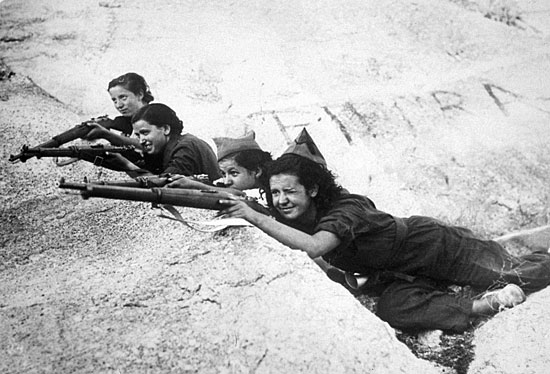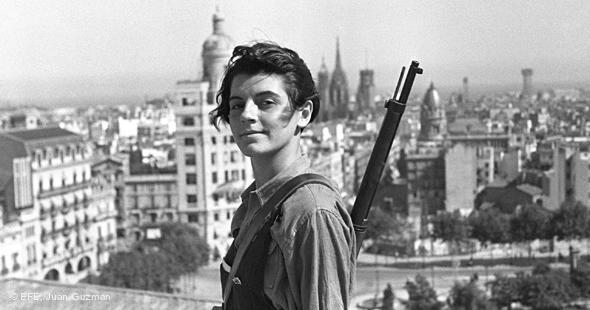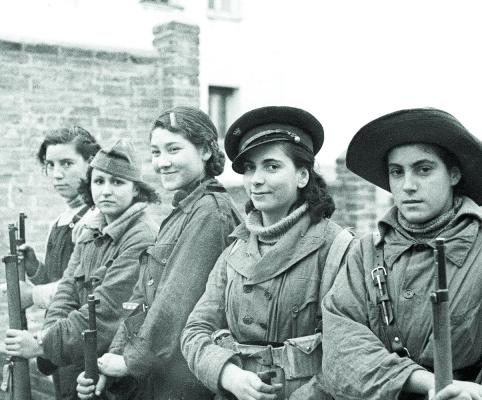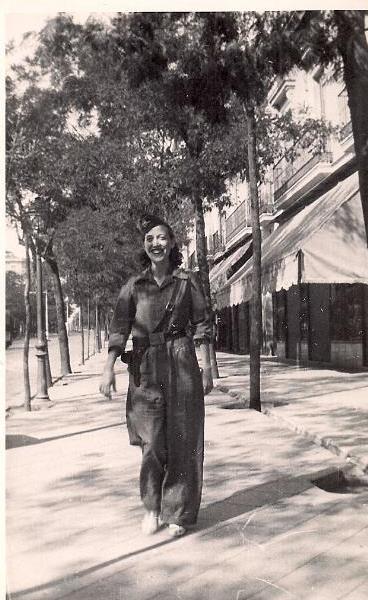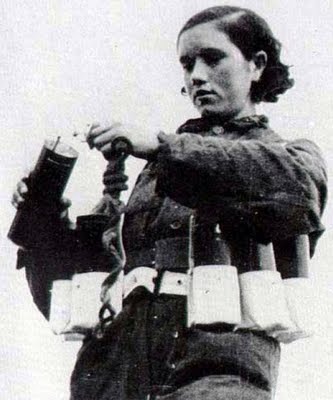I walked, with other souls in pain,
Within another ring,
And was wondering if the man had done
A great or little thing,
When a voice behind me whispered low,
‘That fellow’s got to swing’.
Julian Assange has served his time. He has effectively been deprived of his liberty for a decade and faces many more years in the US, a sentence that far exceeds a proportionate penalty. His continuing persecution brings only shame upon self-proclaimed paragons of “freedom” like the US, Britain and Australia.
In Hilary Mantel’s Wolf Hall sequel, Bring Up The Bodies, Thomas Cromwell’s son questions his father after the trials of Queen Anne and her alleged lovers: When Gregory says, ‘Are they guilty?’ he means, ‘Did they do it?’ But when Thomas says, ‘Are they guilty?’ he means, ‘Did the court find them so?’ The lawyer’s world is entire unto itself, the human pared away.” The law, sadly, is about justice and retribution”.
Imprisoning journalists as spies and traitors has always been the norm in authoritarian countries, such as Saudi Arabia, Turkey and Egypt, while denouncing the free press as unpatriotic is a more recent hallmark of nationalist populist governments that have taken power all over the world. The US, perennially claiming the high moral ground with regard to freedom of the press, and of human rights generally, rarely raises its voice in condemnation and rarer still in anger its “friendly” autocrats. But plotting to take down Julian Assange mere years after condemning (though yet again, not punishing) the kidnap and murder of Saudi journalist and dissident Adnan Khashoggi takes its perfidy to astral heights.
The Road to Belmarsh Gaol
Julian Assange, the Australian co-founder of online media organization WikiLeaks is in deep shit. He’s pissed off the Yanks, frustrated the Poms, and angered his Ecuadorian hosts, and now the Swedes want to have another bash …
He was arrested on April 11th 2019 by British police at the Ecuadorian Embassy in London, where he had been claiming political asylum for almost seven years having lost a final appeal against his extradition to Sweden to face charges of sexual assault. He was then charged with failing to surrender to the court.
While in the embassy, Assange could not be arrested because of the international legal protection of diplomatic premises, which meant police could not enter without Ecuador’s consent. On April 11, British police were invited into the embassy and made the arrest. On the same day, Assange was found guilty on that charge of failing to surrender, sentenced to fifty weeks for jumping bail. and is serving his time at HM Prison Belmarsh.
The United States government unsealed an indictment made in March 2018 charging Julian Assange with a conspiracy to help whistle-blower Chelsea Manning, former soldier and pardoned felon to crack a password which enabled her to pass on classified documents that were then published by WikiLeaks – in effect, conspiracy to hack US computer systems, a charge which carries a maximum five year sentence. The US has requested that the UK extradite Assange to face these charges before a US court. Assange has now been indicted on seventeen charges under the espionage act, which if proven, could mean life imprisonment. There is no guarantee that once he enters the the legal system he will ever re-emerge.
In 2010, a Swedish prosecutor requested Assange’s transfer to Sweden to face sexual assault allegations, which he denies. Whilst appealing a British High Court decision to extradite him, he spent eighteen months under house arrest at the home of a supporter (in effect, he has been incarcerated for almost a decade). In 2016, Assange was questioned by Swedish authorities by video link while he remained in the Ecuadorian embassy. In 2017, they closed the case against him, but after his arrest, the lawyer for one of the Swedish complainants indicated she’d ask the prosecutor to reopen the case. Sweden’s Prosecution Authority reviewed the case and renewed its request for extradition; but in November 2019, it dropped the matter citing a lack of substantive evidence.
But the British Home Secretary Sajid Javid has signed off on the US’ extradition request. It must now go through the British courts. The process could take years, well beyond Assange’s initial fifty weeks incarceration, the court’s refusal to free him when it had expired – on the grounds that he was a flight risk (he has form, after all) – and the formal expedition hearing which open in February 2020.
Stay angry, get even
The current US administration cleaves to the maxim “stay angry and get even” – Uncle Sam neither forgets nor forgives. Just wait and see what happens if it can get its hands on exiled hacker and Now Russian resident Edward Snowden. The British Government, relieved to have restored a corner of Knightsbridge to its sovereignty, and currently knee deep in the Brexit “Big Muddy”, probably won’t lift a finger to help him even though by any standard of much-vaunted British ‘fair play’, his self-imposed punishment hardly fits his alleged crimes, an by any liberal and democratic benchmark, he’s certainly served his time. Former Aussie prime minister Kevin Rudd has declared that Julian Assange would pay an “unacceptable” and “disproportionate” price if he is extradited to the United States, that no actual harm to individuals has been demonstrated, whilst the WikiLeaks founder should not take the fall for Washington’s failures to secure its own classified documents.
Our leaders here in Australia, lost in our own short-term political preoccupations bleat from the distant sidelines that it’s not our problem – which politically and diplomatically speaking, it isn’t, other than the fact that he is an Australian citizen (albeit a longtime absentee) and therefore warrants consular assistance. Simplistically put, there are no votes in it.
Will our government now help him out? Demand his return to Australia? Oppose the calls from the US to extradite him from the UK?
Our tepid and tardy response to the detention in Thailand of footballer Hakeem al-Araibi on a dodgey Bahraini extradition order and the asylum plea of Saudi teen Rahaf Mohammad – ironically, again from Thailand – does not auger well for a resolute and reasonable response. The way we left erstwhile al Qaida fellow-travelers David Hicks and Mamduh Habib to rot in Gitmo, and the lack of enthusiasm with which we took up journalist Peter Greste’s case in Egypt – his family and journalists worldwide maintained the struggle for his release – suggest that after what we call “diplomatic representations” (what ordinary folk call “going through the motions”), we will face political realities and bend to the US’ will.
Caught up between our subservient relationship with the US, our slavish pandering to economic and strategic interests, placing these above considerations of human rights, and our government’s susceptibility to the malign influence of shock-jocks and populist politicians, Australia’s official behaviour in such cases is often predictably and reflexively disingenuous.
Nowadays, most governments are desperate to stop leaks, data dumps, whistle-blowers and uncomfortable revelations. Democratic governments have attempted to use ostensibly benign legal and security powers to restrict media oversight and criticism. Witness here in Australian how the Victorian Director of Prosecutions is seeking to put thirty-six media outlets, editors and journalists on trial over allegations that they breached a suppression order in reports published after the prominent and well-connected Cardinal George Pell was convicted of child sex abuse charges. The powerful look after their own.
Less squeamish, more thuggish autocratic regimes have few qualms about consigning journalists and editors to jail and worse whilst their western allies and armourers ‘see no, hear no, speak no evil’. Narrow, national interests as ever trump (an apposite word, indeed) human rights. Witness the hundreds of Egyptian and Turkish journalists jailed without trial, the harassment and even killing of reporters in Eastern Europe and Russia, and, of course, the gruesome murder of Saudi scribbler and stirrer Jamal Khashoggi.
The US, the land of the free and the First Amendment has truly shown its hand, and its true colours, proving that Assange’s fears of extradition were quite justified. The UK, meanwhile, has long ached to nail him for contempt of its bail laws, and just plain contempt, really – and a seriously extravagant waste of already straitened police resources. When Assange had worn out his Ecuadorian welcome, lubricated, it is alleged (by WikiLeaks), a $4.2 billion IMF bailout plus another $6 billion from other financial institutions, the Met was ready to roll. Meanwhile, Australia’s political class, having long regarded his Australian nationality as an embarrassing inconvenience, just hoped that we could be left out of it all.
Rally ‘round the fall guy
The media, mainstream, extreme, any stream really, including social media and sundry supporters and detractors, are rushing to both praise Assange and to bury him. They defend and demonstrate, denounce and demean. So Julian Assange, simultaneously icon and bête noir, is the ideal fall-guy “pour decourager les autres”: for everyone on the left and the right who dig him, there’s another who can’t stand him for reasons political, personal, or perverse.
There’s the role he played in the demise of Hilary Clinton and election of Donald Trump, as if, some believe, he was hoping for some kind of “get out of jail free” card from a Trump administration. There’s his hanging out, in a confined space, with the likes of UKIP’s irritating and arguably obnoxious Nigel Farage. All this has forever tarnished his reputation as a warrior of the left. There’s those problematical charges in Sweden that we now learn have never gone away.
During the Australian Federal election before last, the party running his senate bid in absentia gave its preferences to right-wing libertarian nut-jobs ahead of Labor and the Greens, his erstwhile natural allies – and then put it all down to clerical error.
Sadly, stories about his tantrums, visits by Yoko Ono, Lady Gaga and onetime Baywatch hottie Pamela Anderson (nudge, nudge, wink, wink!) and neglecting to clean up after his cat – lurid tales of his hygiene habits appear have been concocted to dehumanize him in tabloid tittle-tat – have rendered him an object of ridicule. And the images of him being dragged out of the embassy, pale and blinking in the unforgiving daylight, grey-haired, bearded, wide-eyed and disheveled, like some mad old street person, have engendered pathos and pity.
There can be little doubt that his mental and physical health deteriorated during his confinement. For sure he is not the confident man who entered the embassy so many years ago; but the law doesn’t recognise this – it demands a reckoning. And many love to kick a man when he’s down.
In the end, Assange was in so many ways his own worst enemy. It is hypothesized that he could’ve surrendered to the Brits long time passing and took his chances at law instead of hiding, a much diminished figure, in the embassy of a small Latin American republic. The sad irony is that if he’d faced the music all those years ago, he might’ve been a free man by now, either having done his time or been exonerated, or else, a credible and respected political prisoner supported worldwide as a champion of press freedom and free speech.
Lights in dark corners
Back to Cockburn who writes that one reason Assange was being persecuted was for WikiLeaks’ revelations about US policy in Yemen: “Revealing important information about the Yemen war – in which at least 70,000 people have been killed – is the reason why the US government is persecuting both Assange and Yemeni journalist Maas al Zikry … (who) says that “one of the key reasons why this land is so impoverished in that tragic condition it has reached today is the US administration’s mass punishment of Yemen”. This is demonstrably true, but doubtless somebody in Washington considers it a secret.”
A nice dilemma
WikiLeaks and Julian Assange has done the world many favours. They’ve exposed war crimes in Iraq, Afghanistan and elsewhere; they’ve shine an unwelcome light on wrongdoing, shabby deals, and hypocritical, incriminating and ofttimes embarrassing goings-on in the corridors of power and diplomacy worldwide. And they’ve passed all this on to reputable media sources throughout the so-called free world to sift, analyse, question, join disparate dots, and disseminate.
Yet, in what may seem in retrospect to be a bad dose of overconfidence and hubris, they aspired to be players in the power games of others rather than remaining a neutral and discerning watchdog. And this was perhaps Assange’s undoing – if undone he indeed becomes. This story has some distance to run …
His faithfully longtime lawyer Jen Robinson declared that his arrest, after seven years of self-imposed internal exile, has “set a dangerous precedent for all media and journalists in Europe and around the world”. His extradition to the US, she said, meant that any journalist could face charges for “publishing truthful information about the United States”. She might have added “published outside the US”, Indeed, US revanchism is a chilling demonstration of imperial overreach and a grim warning to others.
And yet, much of the legal argy-bargy around the charges Assange is likely to face in the US hinge on the question of whether he is actually a journalist and whether WikiLeaks is actually a news organization. He and his supporters have long portrayed him as a champion of a free press, but some experts believe that the US Department of Justice’s decision to charge him with conspiring to hack government computers limits his ability to mount a vigorous free speech defense. Assange has long said WikiLeaks is a journalistic endeavour protected by freedom of the press laws, and in 2017, a UK tribunal recognized WikiLeaks as a “media organisation”.
Political prisoner, maybe, whistle-blower, certainly, but “not a prisoner of conscience”, at least by Amnesty International’s definition. Compared to many prisoners on Amnesty’s books, innocents and activists banged up by oppressive regimes, Assange has been pretty well treated. The consistent reference in many media reports to a potential death sentence in the US is egregious insofar as the UK will not allow extradition if a death sentence is on the cards. Many would also dispute the tag “investigative journalist” that some have bestowed upon him, seeing as he and Chelsea Manning released classified US and other information. They did not ferret it out, sift it and analyse it for publication as investigative journalists generally do. As for making Assange a “working class hero”, as some on the far-left have done, that is drawing a long bow. Friends and foes alike are now dancing around these distinctions.
In a concise recent article in The Sydney Morning Herald, Peter Greste, who got to know very well the inside of a squalid Egyptian prison cell and the Egypt’s kafkaesqe judicial system for allegedly publishing what a government didn’t like, makes a few points that Jennifer, her colleague, the eloquent and famous Geoffrey Robertson, and others have skated lightly over:
“Julian Assange is not a journalist, and WikiLeaks is not a news organisation. There is an argument to be had about the libertarian ideal of radical transparency that underpins its ethos, but that is a separate issue altogether from press freedom … Journalism demands more than simply acquiring confidential information and releasing it unfiltered onto the internet for punters to sort through. It comes with responsibility. To effectively fulfill the role of journalism in a democracy, there is an obligation to seek out what is genuinely in the public interest and a responsibility to remove anything that may compromise the privacy of individuals not directly involved in a story or that might put them at risk. Journalism also requires detailed context and analysis to explain why the information is important, and what it all means”.
Greste nevertheless sounds a warning. On the eve of the first extradition hearing on January 25th 2020, in an opinion piece in the SMH, he wrote of how the Obama administration “realized that if they prosecuted him, they would then have to prosecute the New York Times, the Washington Post, the Guardian and others for also publishing much of Wikileaks’ material, and in the process do irreparable harm to the constitutional guarantees for press freedom. It is clear that under Trump, Assange is highly unlikely to have his rights respected or get a fair trial, and those, too, are grounds to oppose his extradition. The manner in which US prosecutors are handling his case, and its implications for anybody who believes in democratic accountability, are too serious to let Assange be extradited without a fight”.
Other Australian are not as hostile to Assange as Peter Greste, as a recent article by Amanda Horton in the Sydney Morning Herald observes, concluding with the not quite rhetorical question of what would Australia do if he was serendipitously returned to our distant shore:
“The Australian government certainly appears singularly unmoved by Julian Assange … Prime Minister Scott Morrison has said the legal processes must “run their course” and Assange should “face the music”. The government position appears to be that f the US wants to extradite him, and extradition proceedings are underway, Australia can’t intervene even if it wanted to … This is total nonsense, says everyone with experience: diplomacy is all about pulling levers behind the scenes … The problem, say sources in government, is that Australia may be reluctant to expend political capital on behalf of Assange … Australia may also be too afraid – “too craven”, according to one – to test its standing with the US; and there may be a sense that the US has gone too far to back down, so a request to do so would be both embarrassing and useless. The US-Australia relationship may be further tested if, eventually, the UK refuses extradition and deports Assange back to Australia. It appears that the US might then be able to request his extradition directly from us. What will we do then?”
Meanwhile people continue to argue over whether Assange is a hero or a ratbag – our ratbag as an equally ratbag conservative Australian member of parliament called him – demanding, surprisingly that he be brought home). They debate whether he is a legitimate journalist, publisher, troublemaker or whistleblower, a Trumpista or Putinesca. But sycophantic and pusillanimous politicians aside, most informed people of goodwill believe that there isn’t a case to answer and that he should be repatriated to Australia. It will be interesting to see where Jen Robinson’s last minute (February 2020) witness statement about Trump’s offer of pardon will go, and indeed, what the British Court will decide. One thing’s for sure: The Powers That Be will continue to play dirty.
© Paul Hemphill 2019. All rights reserved
Yes, Julian is in deep shit. But, you animal lovers and sharers of kitty pics out there in the twitterverse and Facebook world, his cat and companion Michi has gone to a good home …
Read more about politics in In That Howling Infinite here: A Political World – Thoughts and Themes







